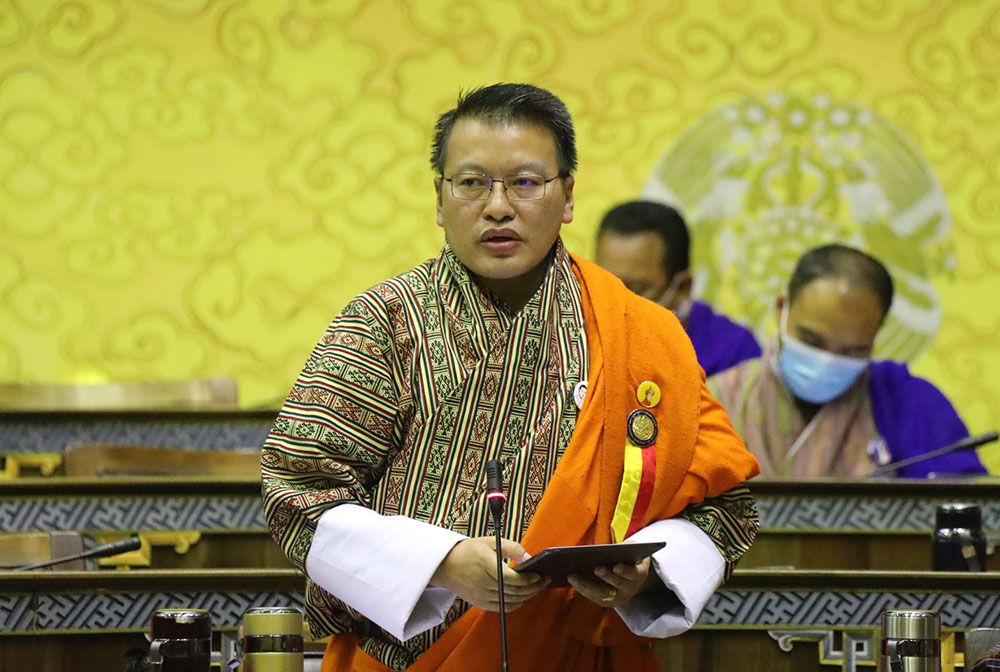Yangyel Lhaden
The Ministry of Labour and Human Resources (MoLHR) is focusing on providing youth with skills to address youth unemployment, Layog Lyonpo (Labour Minister) Karma Dorji said, responding to a query on youth unemployment at the National Assembly question hour yesterday.
Bartsham Shongphu Member of Parliament (MP) Passang Dorji (PhD) asked what strategic interventions the MoLHR was working on to address rising unemployment among the youth.
“Youth unemployment affects more females than males, more of those in urban environments than in rural ones, and more among university and Class 12 graduates,” he said.
He said that youth unemployment could be addressed by providing skills to youth to cater to domestic as well as international markets.
The Labour Force Survey 2020 projects the youth unemployment rate to be 22.6 percent, almost double the 11.9 percent rate in 2019. There are 6,922 unemployed youth in the country today. The overall unemployment rate has increased to 5 percent. Except for 2019, Bhutan recorded an increasing trend in the unemployment rate over the recent years.
Layog Lyonpo said that there are various interventions the MoLHR is working on to impart skills to youth. “The ministry cannot create jobs, we can only provide skills training.”
Since October, the MoLHR has trained 255 young jobseekers under its 108 skills programme. The ministry aims to train 9,000 jobseekers within two years.
The Youth Engagement and Livelihood Programme (YELP) has supported 1,225 youth. Lyonpo said that through YELP, yearlong support of Nu 5,000 a month was provided to youth aspiring to start any kind of business, and those in on-the-job-training to develop skills.
Similarly, the Build Bhutan Project has trained 2,717 youth under its skilling programme. Lyonpo said that the ministry expects to train 3,364 youth in a year.
The ministry also resumed overseas employment last month, and 139 youth went to 16 countries to work. The ministry’s aim is to engage 6,000 youth within four years.
Meanwhile, Sombaykha MP Dorjee Wangmo said that with the lack of domestic workers, parents working in offices face problems and that they are likely to increase. Studies suggested only about 70 percent of the couples in the country have two children or less. “The decline of fertility rate translates to a country that will soon see fewer productive people.”
She asked what initiatives the government is taking to address the problem of a lack of domestic workers.
Lyonchhen Dr Lotay Tshering said that most of the unemployed youth are educated, and they will not be interested in taking up domestic jobs. “Moreover, by educating our youth, we aspire them to get jobs as per their qualification.”
Lyonchhen said that to address the lack of domestic workers, labour has to be imported from outside. “Before that begins, strong rules and regulations for foreign worker import have to be in place,” he said. “The MoLHR is already working on it.”


